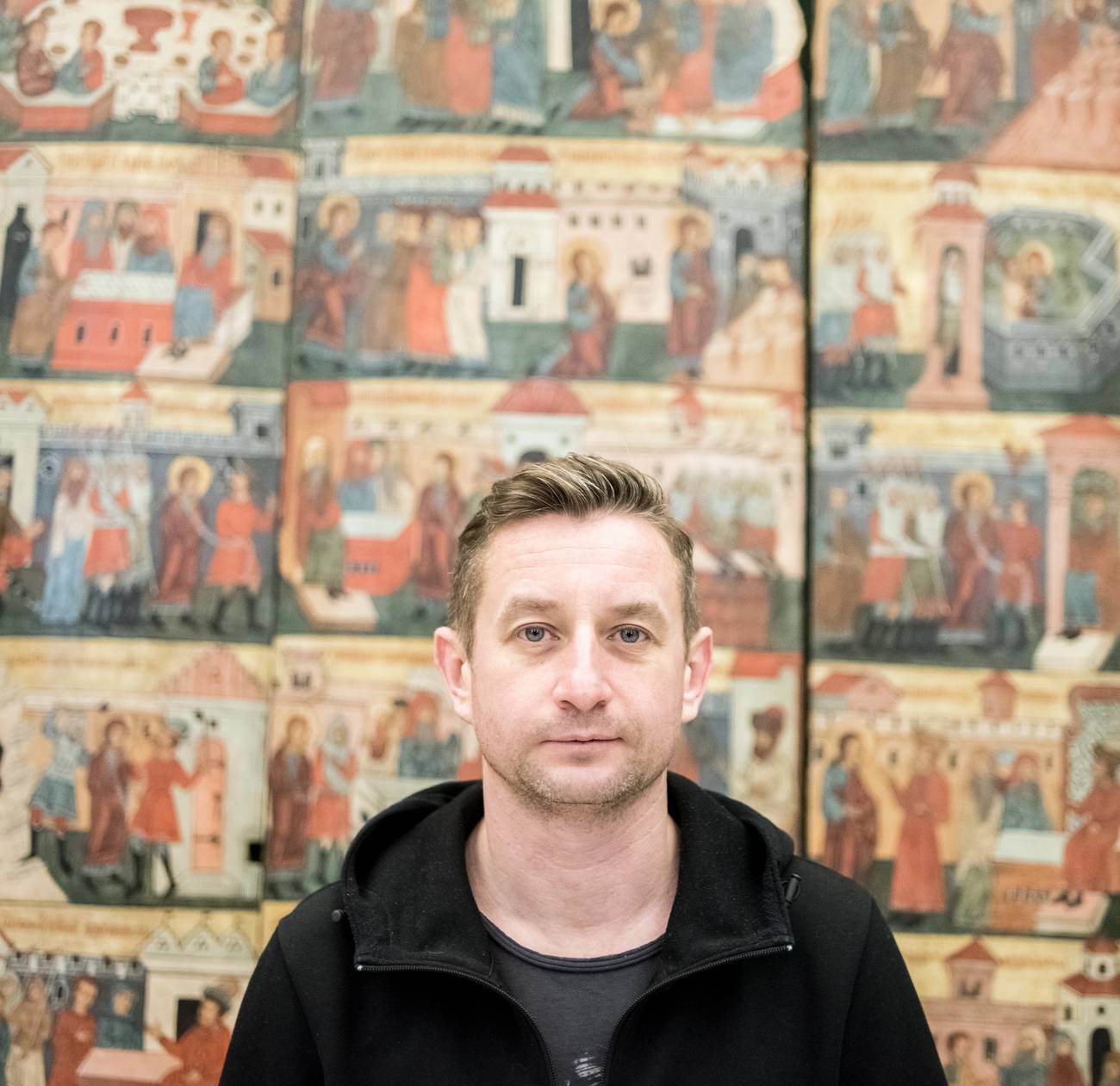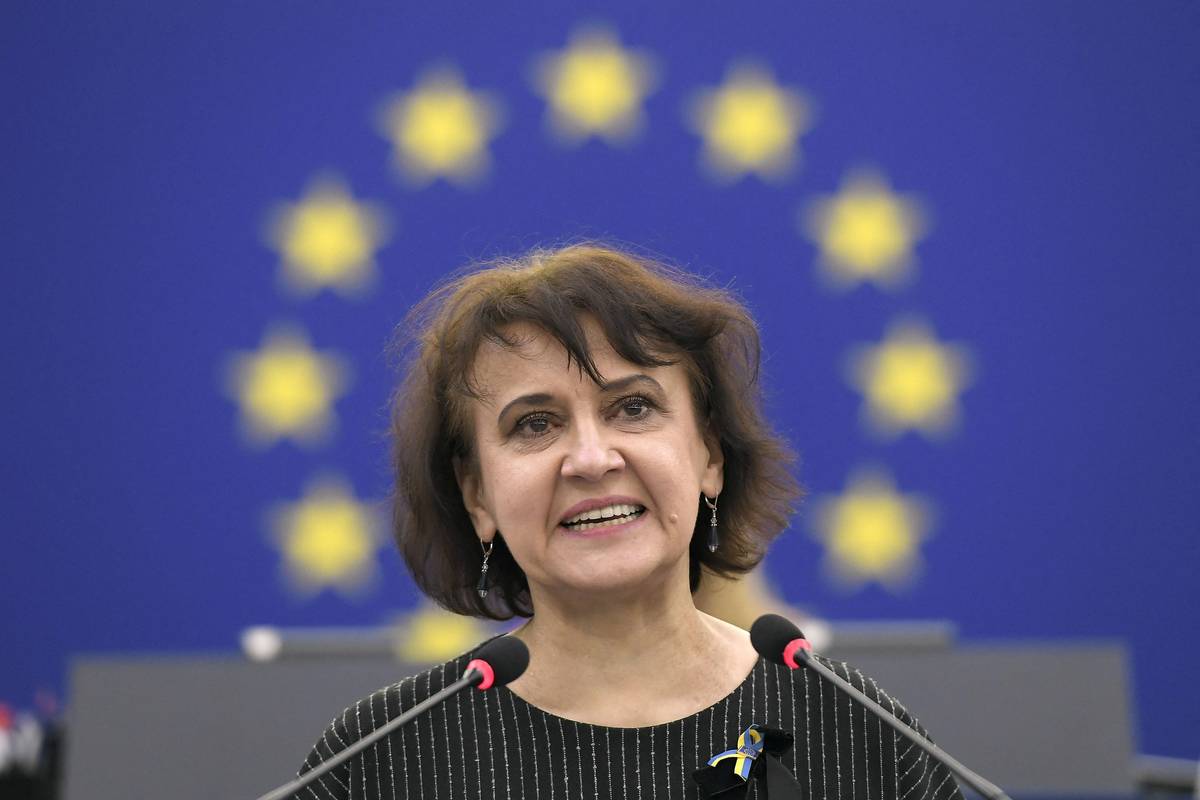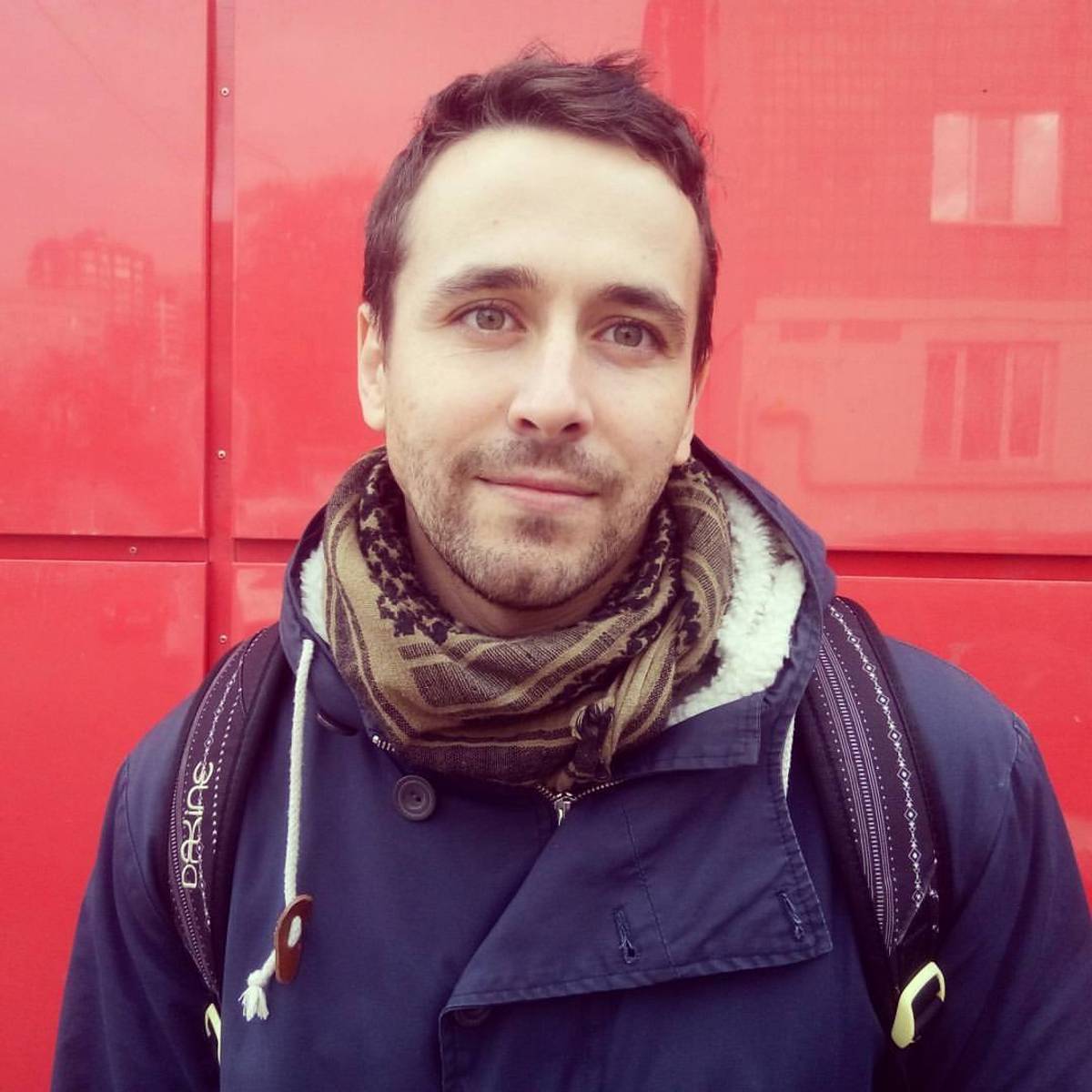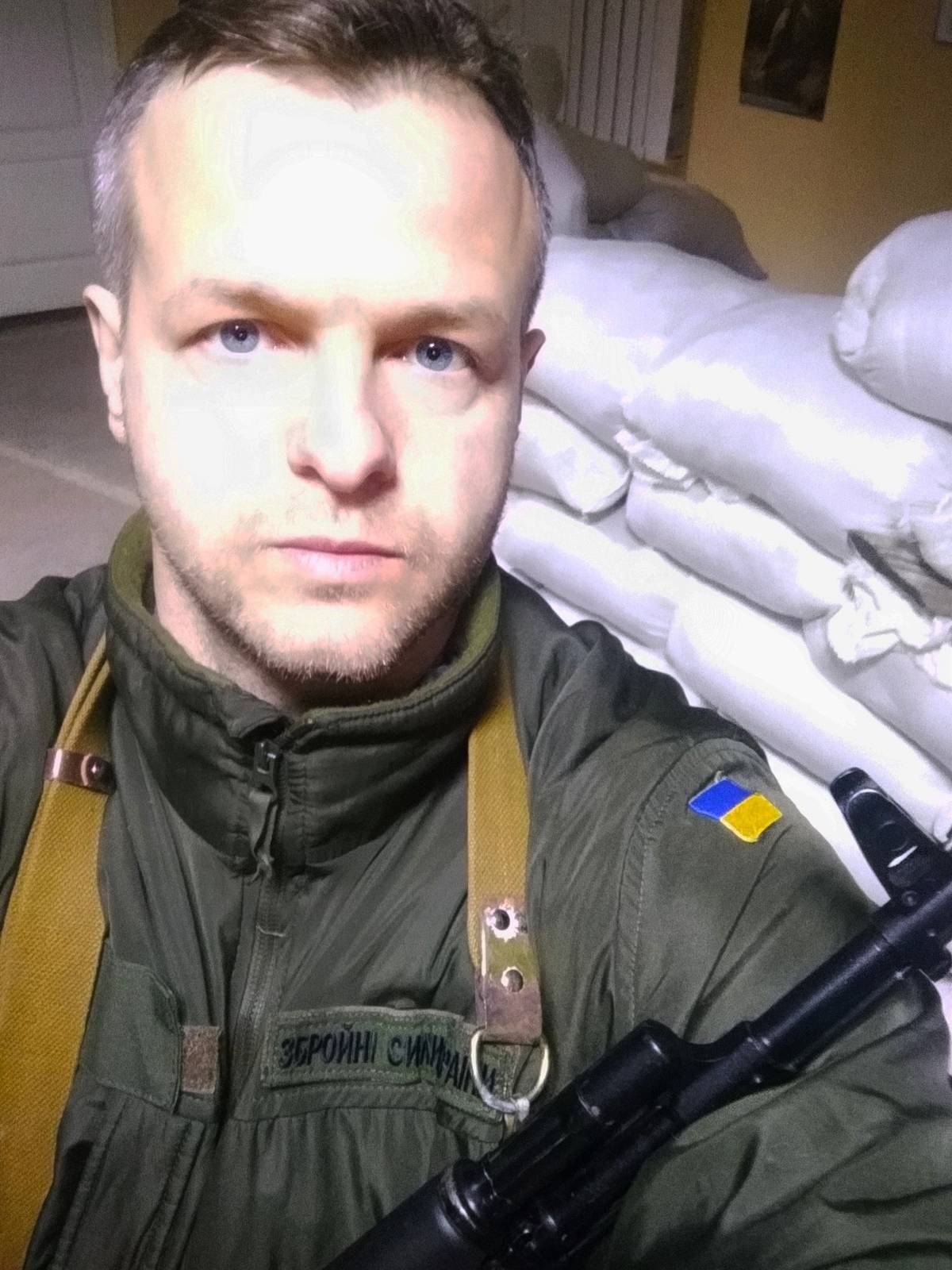The Landscape of Ukrainian Literature
Six writers shaping the future of the plucky, original, and politically significant genre



The emergence of a vital, original, plucky, politically committed and funny contemporary Ukrainian literature is one of the great stories of modern-day Europe. By necessity, the genre is an energetic literature which has had to grapple with looming issues of historical trauma and postcolonial identity against the backdrop of divisive internal political issues and the war for domination with Moscow. Indeed, Ukrainian writers have excelled over the past two decades in the traditional 19th-century mode of realism popularly associated with the great Russian novel as well as at the recently dominant style of global modernism, with its trademark airport bookshop absurdism and sly nods towards the apocalyptic. Though this is by no means the only topic explored within contemporary Ukrainian literature, a number of the most talented Ukrainian authors have chronicled or grappled with the multilayered impact of the Russian war.
An old guard of contemporary Ukrainian writers such as Oksana Zabuzhko, Serhiy Zhadan and Yuri Andrukhovych have become canonical and even world-renowned, but an intriguing new generation of young writers has also emerged in recent years. Some of these young writers are extraordinarily talented and seem as if they are about to have their moment in the West. The war has brought out the best in these established and emerging authors alike.
Serhiy Zhadan
Likely the most renowned living Ukrainian writer—he was recently nominated for the Nobel Prize—Zhadan is in many ways the inspector of souls of contemporary Ukrainian literature. Hailing from the industrial East of Ukraine, he is a chronicler of the war as well as an acclaimed heartthrob. The lead singer of a rock band, he alternates between writing gritty poetry and realist novels, all while living the life of one of Ukraine`s great public intellectuals. Zhadan’s novels have been translated into English over the last few years by Reilly Costigan Humes and Isaac Stackhouse Wheeler. In 2019, Deep Vellum released their translation of Voroshilovgrad, which follows the protagonist’ return to his native Donetsk after his brother’s disappearance. His interactions with the people there, who in many ways are held hostage by the ghosts of the Soviet past, serve as an uncanny premonition of the violence which would break out in 2014. This past year, Yale University Press published Zhadan’s The Orphanage, in which a Ukrainian teacher in Donetsk who must venture into the occupied territories at the outbreak of the war to rescue his nephew. Along the way he is transformed from an apolitical bystander into an active-minded citizen.
Since the escalation of the war a month ago, Zhadan has remained in Kharkiv, coordinating humanitarian efforts and updating his followers on social media about the latest news from the city. Much to their delight, he has been prone to bouts of mischief, such as when he posted the phone number of pro-Russian deputy Illya Kiva for those who wanted to “discuss philosophy” with him. More seriously, he got into a heated online exchange with the Russian poet Andrei Pustogarov, which he concluded with a profane ultimatum for Pustogarov to never show his face in Ukraine again. The exchange was emblematic of the fraying of relations between Ukrainian and Russian writers, which continue to dissolve after eight years of the war.
Oksana Zabuzhko

A prominent public intellectual and social commentator, Oksana Zabuzhko has long been considered the preeminent female writer on the intersection of feminism and Ukrainian national identity. In the mid 1990s, her first novel, Field Work in Ukrainian Sex, opened up fierce debates about women’s role in Ukrainian society. It has been called by many “the most important Ukrainian novel since independence” for the manner in which it explores the lasting scars that authoritarian states leave on individuals, and the manner in which they contort relations between people. Zabuzhko has also written numerous philosophical texts exploring the meaning of Ukrainian identity. The most recent of these is a collection of her conversations with Sviatoslav Shevchuk, the major archbishop of the Ukrainian Greek Catholic Church, about the 19th-century poet Lesya Ukrainka. The femme fatale feminist icon and the cleric discussed the way the Ukrainian national poetess engages with Christianity in her texts, as well as the way the Soviets misrepresented Ukrainka’s radical reinterpretations of synodal Orthodoxy as a form of atheism in official propaganda.
Last week Zabuzhko spoke at the European Parliament on International Woman’s Day: “I cannot but admire my fellow women fighting alongside our men, managing the distribution of supplies across our besieged cities and giving birth in bomb shelters, supervised by doctors online. The problem is Putin’s bombs will not be stopped by the strength of our spirit.’’

Lyuba Yakimchuk
Admirers of Serhiy Zhadan’s poetry will also enjoy the poetry of Lyuba Yakimchuk, his fellow native of the Eastern Donbas region. The poet, screenwriter, and journalist rose to national prominence in Ukraine with her poetry collection Apricots of Donbas, published this year by Lost Horse Press in Oksana Maksymchuk, Max Rosochinsky, and Svetlana Lavochkina’s translation. An internally displaced person after the Russian invasion of her native lands in 2014, Yakimchuk has devoted her poetic voice to those touched by the war in Ukraine as well as the human connections which hold up in spite of the devastation surrounding them. She also tries to understand the manner in which the war has ripped friends and families apart.
Yakimchuk’s burgeoning career as a screenwriter is worth keeping an eye on. In 2017, she penned the script for the award-winning documentary The Slovo House, about the renowned Slovo building built in 1930s Kharkiv, which housed a generation of Ukrainian artists who would be imprisoned and killed by the NKVD during the Stalinist purges. Today, these writers are known collectively as the “executed renaissance.” The experiences, works, and legacies of that generation are of renewed interest since 2014 and take on an even greater meaning when one witnesses the horrific images emerging from Kharkiv as the Russian army levels this Ukrainian city to the ground. Last week, Slovo House was brutally bombed by the Russian air force.
Stanislav Aseyev
The journalist Stanislav Aseyev stayed behind in his native Donetsk after it became occupied by Russian forces. From 2015 to 2017, he wrote a series of dispatches for both Ukrainian and Western media under the nom de guerre Stanislav Vasin. These detailed the reality of life in the town of Makiïvka and in Donetsk under the control of the so-called Donetsk People’s Republic, which was as surreal as it was barbaric. Aseyev also endeavored to understand how it was possible that the Donetsk People’s Republic came into existence, and how his fellow Ukrainians felt vulnerable to Russian propaganda. In 2017, he was arrested under trumped-up espionage charges and sentenced to Izolyatsia, the former factory turned art center turned torture camp. The story of a renowned art center being converted into a site of torture is an important lens for understanding the social and artistic costs of the war.

Lidia Wolanskyj’s translation of Aseyev’s collected dispatches is available to read in the anthology In Isolation: Dispatches from Occupied Donbas, published by Harvard’s Ukrainian Research Institute this year. Aseyev would spend two and a half years as a prisoner in Izolyatsia until his release in a prisoner exchange in 2019. While still in captivity, he began to write about his experience, detailing the many war crimes being committed against Ukrainian civilians in his book The Torture Camp on Paradise Street. That book is currently being translated into English and when it is published will likely be seen as his most important work.
Aseyev’s writing prior to his torture is rich with eloquence and literary references. He had penned poetry and plays, making him not only a journalist but a true member of Ukraine’s literary elite. In his book The Melchior Elephant, or, A Man Who Thought, he details his youthful dreams of leaving behind his native Donetsk and joining the French Foreign Legion. It is a bildungsroman worthy of appreciation alongside many western European classics. Yet following Aseyev’s time in Izolyatsia, his prose style stripped bare of the ornamentation and philosophical musings once so central to his style. That fact remains an enduring testament to the horrors he lived through in the art center-turned torture chamber. Like many other Ukrainian writers, Aseyev is currently serving in Kyiv’s Territorial Defense Forces.
Artem Chekh
Service in the armed forces is a common experience for Ukrainian writers in a way that it no longer is for writers in advanced Western economies. Artem Chekh is but one of many authors to have served in the Ukrainian Armed Forces since the start of the war in 2014. He has returned to military service following the events of Feb. 24. His book Absolute Zero was published by Glagoslav in 2020 in Oksana Lutsyshyna and Olena Jenning’s translation, detailing his military service in 2015-16. Chekh first wrote many of the stories in the form of private Facebook posts, intending to update friends and family on the war in real time. Those who are looking for sweeping, romantic generalizations about Ukraine’s struggle will be disappointed; instead, Chekh focuses on a hyperrealist portrayal of the moments that occupy most of an average soldier’s time in between battles.

Absolute Zero is also a nuanced portrait of the makeup of the Ukrainian military during the early days of the war. Chekh comes from a family of Ukrainian-speaking intelligentsia in the city of Cherkasy and had naively expected to find likeminded people among the ranks. Yet he is taken aback by the working-class defenders of Ukraine: Many of his fellow soldiers did not participate in the Maidan Revolution of 2013-14 as he did, and they are Russian speakers to boot. Despite their social and cultural differences they are united by an abject horror over Russia’s efforts to dismantle Ukrainian statehood and are willing to give their lives to protect their homeland.
Chekh’s views on the war with Russia have remained sober over the years. As he noted in a recent interview: “War will be a taboo subject in literature for as long as it lasts. There are certain issues for which the time has not yet come. Of course, some European communities are squealing with delight at the prospect of it—they crave to see different truths, ambiguities, and disagreements. This is a war, and there is no truth in it.”

Artem Chapeye
Keep an eye out for the work of Artem Chapeye, he is about to become huge. The titular story of Artem Chapeye’s collection The Ukraine, which explores the complexity of Ukrainian post-Maidan identity, in all of its beauty and misery, will soon appear in The New Yorker in Zenia Tompkins’ fetching translation in the coming weeks. Yet the popular fiction and creative nonfiction writer will have to have to hold off on celebrating for now; he enlisted after evacuating his family from Kyiv to safety in the West, and as he playfully observed in a conversation with his translator, his fellow soldiers don’t exactly read or care about The New Yorker. Much of Chapeye’s work is a celebration of how others live, and his curiosity and tolerance clearly resonates with Ukrainian readers. He is a bestselling author and four-time finalist for BBC Ukraine’s prestigious Book of the Year Award.
Chapeye had been Chomsky’s Ukrainian translator during his youthful days as an idyllic leftist, but like many of us have with age, has since grown disillusioned with the linguist’s politics. For Chapeye, Chomsky has a terminal inability to perceive Ukraine’s struggle through anything other than a very stale Cold War geopolitical lens. Shortly after fleeing Kyiv, Chapeye penned an open letter on his phone that appealed to the West for greater support of Ukraine against Russia: “I don’t want to make any flawed historical comparisons, but empires have lost wars against smaller peoples before, and in the end, the Russian imperialist government must lose. When you’re being bombed, when you’re thinking of ways to evacuate your kids, you have a different perspective than when you’re sitting cozy in an office somewhere in Arizona. Yes, Noam Chomsky, I’m looking at you, among others.”
Vladislav Davidzon is Tablet’s European culture correspondent and a Ukrainian-American writer, translator, and critic. He is the Chief Editor of The Odessa Review and a Non-Resident Fellow at the Atlantic Council. He was born in Tashkent, Uzbekistan, and lives in Paris.
Kate Tsurkan is the editor-in-chief of Apofenie Magazine